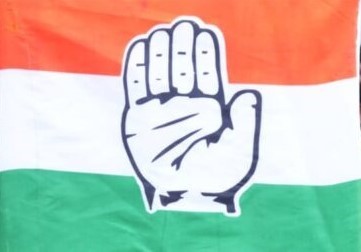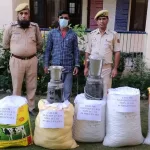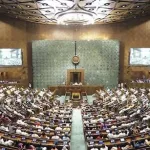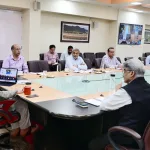The recent cross-border shelling in Poonch and adjacent areas of Jammu and Kashmir, which led to the tragic loss of fourteen lives including four children, has drawn a measured and multidimensional response from the Indian National Congress.
Far from routine political commentary, the party’s recent engagement reflects a deeper concern with governance, compassion and national unity.
At its core, the Congress’s response seeks to broaden the national conversation. Without undermining the vital role of the armed forces, the party underscores the need to recognize and protect civilian lives particularly those residing in vulnerable border regions. In doing so, it reinforces a holistic view of national resilience, where both military valor and civilian endurance are honored.
The visit of Rahul Gandhi, Leader of the Opposition in Lok Sabha, to the affected families in Poonch carries both symbolic and strategic significance. His outreach went beyond customary political gestures, aiming instead to humanize the discourse surrounding security challenges.
In his letter to Prime Minister Narendra Modi, Gandhi called for “concrete and generous relief,” urging the Centre to respond not just with sympathy but with actionable support.
His remarks reflected a key point: national policies must not lose sight of the people they impact. His emphasis on the region’s long-standing legacy of peace and communal harmony offered an important counter-narrative to the notion of constant hostility in border areas.
By invoking this history, he positioned the people of Poonch not merely as inhabitants of a conflict zone, but as part of a community that has long exemplified coexistence under challenging circumstances.
Crucially, Gandhi did not question India’s security imperatives. Rather, he sought to ensure that in the pursuit of strategic objectives, the needs and rights of civilians are not overlooked.
Adding institutional gravitas to the Congress’s position, JKPCC President and Central Shalteng MLA Tariq Hameed Karra called for recognizing the civilian victims with “martyr status.”
His proposal is not intended to compare civilian and military sacrifice directly but to affirm that those who lose their lives in the service of the nation—whether in uniform or as innocent victims—deserve national recognition and respect.
Karra’s demand for immediate compensation and long-term resettlement support reflects a broader understanding of post-crisis responsibilities. Emergency relief is essential, but it is equally important to address the lasting emotional, economic, and social disruptions that follow such tragedies.
Similarly, Dr. Audil Farooq Mir Lasjan, representing the party’s grassroots presence in the region, brought moral clarity to the discussion. His statement that civilian lives “must not be compromised in the name of strategic goals” calls for a governance approach where national security and civilian safety are pursued together, not in conflict.
His perspective implies that governments must treat the safety and preparedness of border communities not as an occasional concern but as a continuous administrative priority. Schools, hospitals and housing in such regions should be developed not just for normal times but with contingencies in mind.
What emerges from the Congress’s collective response is a framework that is both empathetic and policy-oriented. It gives a moral perspective together to create a narrative that respects national interests while demanding compassion and justice for civilians caught in cross-border tensions.
The shelling in Poonch is more than a regional tragedy—it serves as a lens through which critical questions must be asked: How can governance be more responsive? How can the state recognize all forms of sacrifice? And how can security be ensured without compromising human dignity?
Whether the Congress’s intervention leads to long-term policy reform or remains a moment of political reflection will be tested over time. But its approach sets an important example of how opposition politics can be rooted in responsibility, empathy, and a firm commitment to national unity.








